The Indigenous voice to parliament is an opportunity for peace with ourselves and our history

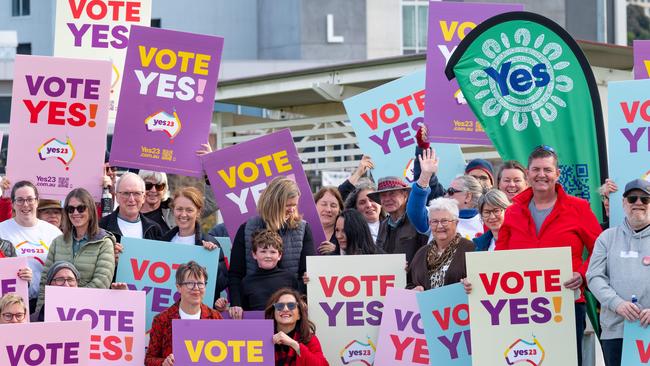
It is entirely the wrong way to look at the voice.
Let’s set aside for the moment that those who advocate the no case in the impending referendum have no idea on how reconciliation might progress should their campaign be successful, besides throwing more money and resources at systemic disadvantage in the hope of better outcomes.
The old axiom that doing the same thing over and over and expecting a different result does not appear in the Diagnostic and Statistical Manual for Mental Disorders. It’s not insanity, it’s futility. Social gridlock and stalemate.
The voice is an invitation from First Australians to non-indigenous Australians to join them on a pathway to true reconciliation.
It’s a big idea, conceptually difficult to grasp, and I might add, largely ignored by advocates of the voice in their campaigning. It strikes at national identity. The sense of who we are and where we fit in the world.
It is an opportunity to lose the dispiriting conjunction. We’re a great nation but …. Australia is a shining light of opportunity, of personal freedom and democracy albeit with one big glaring exception.
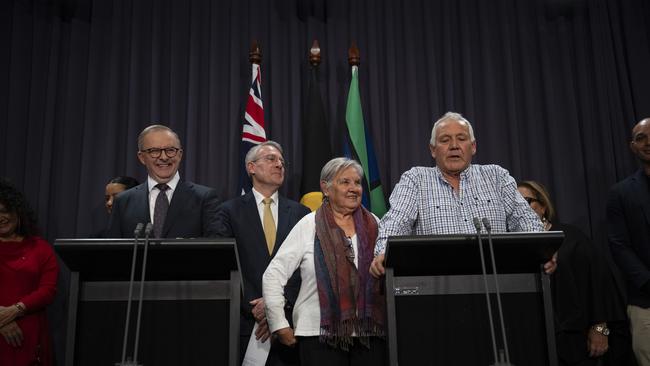
The voice is a gift to the nation not to assuage guilt or diminish shame but to offer the possibility of a future absent of historical enmity and distrust.
In the prodigious Op-Ed scribbling for or against that I’ve read, not one has thought it pertinent to include how our constitution will change. Let me help out.
A yes vote in the majority of states and in the majority of all votes will lead the Australian parliament to legislate the Constitution to include a new chapter. The form of words below may vary but not in any substantial way.
Chapter IX Recognition of Aboriginal and Torres Strait Islander Peoples
S. 129 Aboriginal and Torres Strait Islander voice
In recognition of Aboriginal and Torres Strait Islander peoples as the First Peoples of Australia:
There shall be a body, to be called the Aboriginal and Torres Strait Islander voice;
The Aboriginal and Torres Strait Islander voice may make representations to the parliament and the Executive Government of the Commonwealth on matters relating to Aboriginal and Torres Strait Islander peoples;
The parliament shall, subject to this Constitution, have power to make laws with respect to matters relating to the Aboriginal and Torres Strait Islander voice, including its composition, functions, powers and procedures.
That’s it, folks.
The voice has no right of veto and where advice is offered to government and the executive, it can be ignored, as it is now routinely, whether it comes from the bureaucracy or interest groups.
There are some who argue that constitutional recognition should be enough. But that would be hollow symbolism. A tepid acknowledgment that Terra Nullius is no longer a valid legal proposition.
The argument that this modest change to the Constitution will make First Australians our legal masters is absurd. Do I really need to spell how bizarre that thinking is?
The way to look at the voice in practical terms is in certain policy areas that affect indigenous Australians directly. Let’s look at grog bans. And let’s first acknowledge that these legal impediments placed on indigenous Australians in rural and remote Australia are an intrinsic discrimination.
Imagine if the state decided to impose the Australian version of the Volstead Act in the suburbs of our major cities. If we hankered for some light refreshment we could purchase some hooch from a latter day Al Capone or buy a carton of the sponsor’s drop for $300 courtesy of a black marketeer with an entrepreneurial gleam in his eye.
It’s fair to assume, Canberra would be mobbed and parliament turned to rubble. I’d give it about 12 hours. Yet, at the moment, this discrimination in indigenous communities is imposed by government, often with good intentions but imposition it is.
It’s a complex issue that raises all manner of social conundra. The rights of children, the rights of women. Domestic violence. Property and personal crime.
As it stands, the government response leads to more conflict. We saw it again this year. More police, more prosecutions, more indigenous Australians in detention. More indigenous Australians cast into economic, intellectual and spiritual poverty.
And annually, the parliament punches out pamphlets with smiling indigenous faces on the cover with the data therein revealing another sorrowful tale for indigenous Australians of diminished life expectancy, of amplified likelihood of incarceration, of dismal health, employment and educational outcomes that the rest of Australia would not accept in their own backyards.
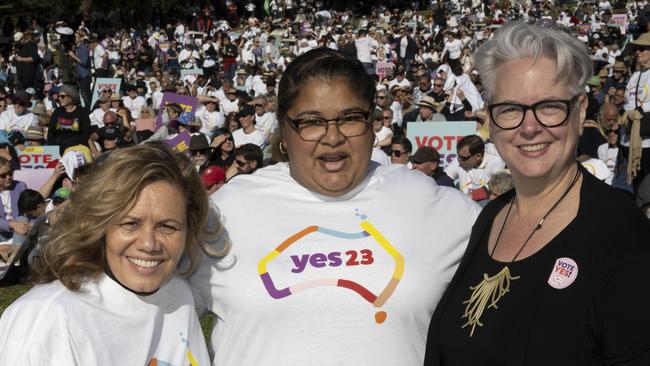
The voice is not a means of delivering a structural advantage to overcome centuries of systemic disadvantage. It is a means of self-determination, of advocacy from community level all the way to Canberra. It cannot be expected to resolve complex problems overnight. It may not solve them at all. But at the end of the day, the voice empowers governments to act not out of well intentioned patriarchy but to be informed, directly and indirectly, by the thoughts and ideas of communities who have a deep appreciation of what might work and what won’t.
The voice is not a panacea for indigenous disadvantage but in time, it should lead to better social outcomes. There will be problems along the way, there will be conflict between the voice and government. A High Court challenge here and there. Disputes, bickering, disagreements. It’s politics. It’s the one thing we can expect.
We are at a fork in the road of our history. What the proponents of the voice are offering is an endowment to the nation. It is the gift of peace and if permitted, bequeaths the nation the rarest of opportunities to be at peace with itself and its history.

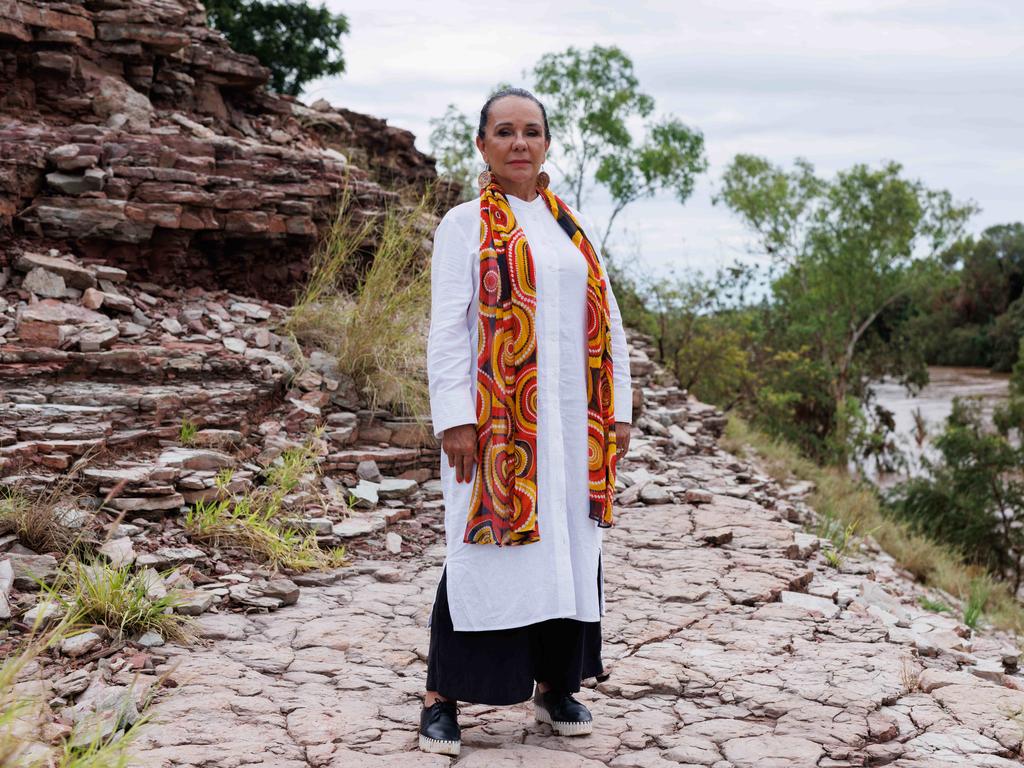

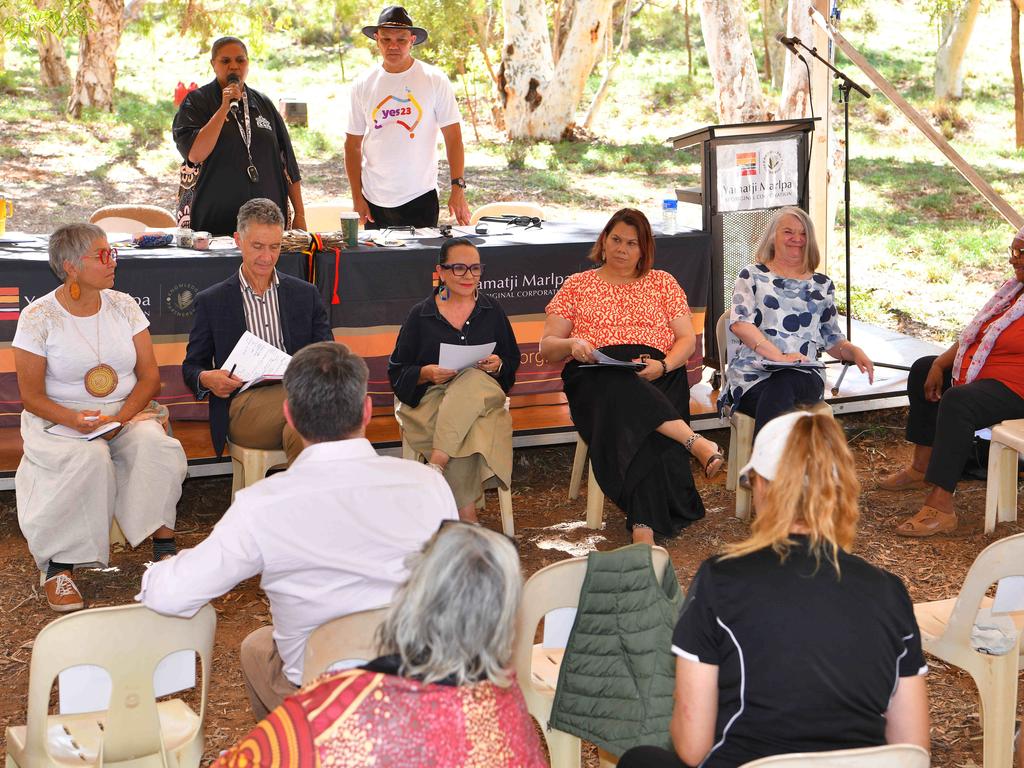



People with good intentions on both sides have launched an ocean of rhetoric and polemical squabbles, debating whether the voice is the best response to structural disadvantage.